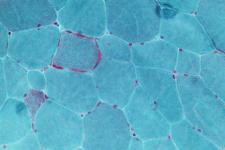Better Mitochondrial Replacement: But Why?
By Ricki Lewis,
PLOS
| 06. 09. 2016
The disconnect was striking between the headline of the news release a few days ago – “Improved method for mitochondrial replacement therapy” – and the title of the paper to which it refers – “Towards clinical application of pronuclear transfer to prevent mitochondrial DNA disease.”
The news release reported changes in the experimental protocol for pronuclear transfer (PNT) a proposed way to prevent mitochondrial disease. Pronuclei house the genomes in egg and sperm. PNT places them into human fertilized ova whose nuclei have been removed, but whose mitochondria remain in the cytoplasm. The intent is to fashion fertilized ova missing the mitochondria from a woman who has a mitochondrial mutation, which she’d know from having a child with one of the dozen or so diseases caused by mutations in mitochondrial genes. (Additional conditions that affect mitochondria result from mutations in genes in the nucleus).
The paper, published yesterday online in Nature, is from Mary Herbert and colleagues at the Wellcome Trust Centre for Mitochondrial Research, Newcastle upon Tyne, United Kingdom.
It’s a clear, concise report of technically elegant and...
Related Articles
By Mike McIntire, The New York Times | 01.24.2026
Genetic researchers were seeking children for an ambitious, federally funded project to track brain development — a study that they told families could yield invaluable discoveries about DNA’s impact on behavior and disease.
They also promised that the children’s sensitive...
By Arthur Lazarus, MedPage Today | 01.23.2026
A growing body of contemporary research and reporting exposes how old ideas can find new life when repurposed within modern systems of medicine, technology, and public policy. Over the last decade, several trends have converged:
- The rise of polygenic scoring...
By Danny Finley, Bill of Health | 01.08.2026
The United States Food and Drug Administration (FDA) has a unique funding structure among federal scientific and health agencies. The industries it regulates fund nearly half of its budget. The agency charges companies a user fee for each application
...
By George Janes, BioNews | 01.12.2026
A heart attack patient has become the first person to be treated in a clinical trial of an experimental gene therapy, which aims to strengthen blood vessels after coronary bypass surgery.
Coronary artery bypass surgery is performed to treat...




